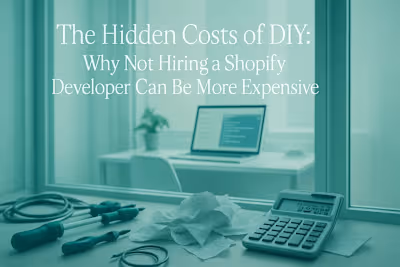The Best Platforms to Launch Your Shopify Developer Career in 2025

The Best Platforms to Launch Your Shopify Developer Career in 2025
Vetted Freelance Platforms for Top-Tier Talent
Why Vetted Marketplaces Are Worth It
Spotlight on Leading Vetted Platforms
Broad Marketplaces: Opportunities for All Levels
Maximizing Your Success on Large Platforms
Navigating Job Postings and Invitations
Niche and Specialized Job Boards
The Advantage of Niche Platforms
Exploring Shopify-Specific Career Hubs
Building Your Own Brand: Beyond the Platforms
Leveraging Professional Networks like LinkedIn
The Power of a Personal Portfolio Website
Conclusion
References
The Best Platforms to Launch Your Shopify Developer Career in 2025
Vetted Freelance Platforms for Top-Tier Talent
Why Vetted Marketplaces Are Worth It
Spotlight on Leading Vetted Platforms
Broad Marketplaces: Opportunities for All Levels
Maximizing Your Success on Large Platforms
Navigating Job Postings and Invitations
Niche and Specialized Job Boards
The Advantage of Niche Platforms
Exploring Shopify-Specific Career Hubs
Building Your Own Brand: Beyond the Platforms
Leveraging Professional Networks like LinkedIn
The Power of a Personal Portfolio Website
Conclusion
References
Posted Jul 4, 2025
Ready to kickstart your Shopify developer career? Explore the best freelance platforms and job boards of 2025 to find high-quality projects and build your reputation as a top Shopify expert.









